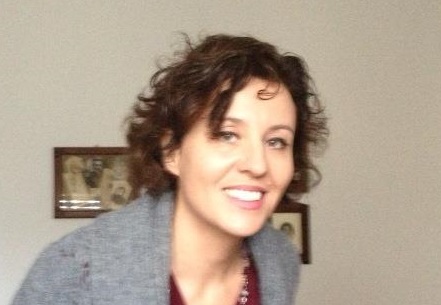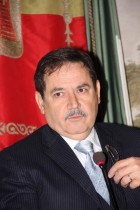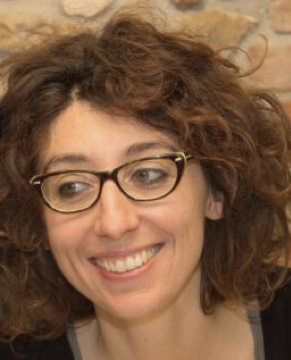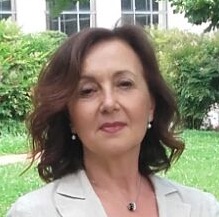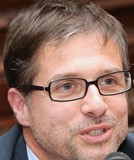Studiare
In questa sezione è possibile reperire le informazioni riguardanti l'organizzazione pratica del corso, lo svolgimento delle attività didattiche, le opportunità formative e i contatti utili durante tutto il percorso di studi, fino al conseguimento del titolo finale.
Calendario accademico
Il calendario accademico riporta le scadenze, gli adempimenti e i periodi rilevanti per la componente studentesca, personale docente e personale dell'Università. Sono inoltre indicate le festività e le chiusure ufficiali dell'Ateneo.
L’anno accademico inizia il 1° ottobre e termina il 30 settembre dell'anno successivo.
Calendario didattico
Il calendario didattico indica i periodi di svolgimento delle attività formative, di sessioni d'esami, di laurea e di chiusura per le festività.
| Periodo | Dal | Al |
|---|---|---|
| Sem. IA | 1-ott-2014 | 16-nov-2014 |
| Sem. IB | 17-nov-2014 | 18-gen-2015 |
| Sem. IIA | 23-feb-2015 | 19-apr-2015 |
| Sem. IIB | 20-apr-2015 | 7-giu-2015 |
| Sessione | Dal | Al |
|---|---|---|
| Sessione Estiva (Esami sospesi dal 14 al 16 luglio) | 8-giu-2015 | 31-lug-2015 |
| Sessione Autunnale | 1-set-2015 | 30-set-2015 |
| Sessione Invernale | 18-gen-2016 | 21-feb-2016 |
| Sessione | Dal | Al |
|---|---|---|
| Sessione Estiva | 14-lug-2015 | 16-lug-2015 |
| Sessione Autunnale | 10-nov-2015 | 12-nov-2015 |
| Sessione Invernale | 14-mar-2016 | 17-mar-2016 |
| Periodo | Dal | Al |
|---|---|---|
| Festa di Ognissanti | 1-nov-2014 | 1-nov-2014 |
| Festa dell'Immacolata Concezione | 8-dic-2014 | 8-dic-2014 |
| Vacanze Natalizie | 22-dic-2014 | 6-gen-2015 |
| Vacanze Pasquali | 2-apr-2015 | 7-apr-2015 |
| Festa della Liberazione | 25-apr-2015 | 25-apr-2015 |
| Festa dei lavoratori | 1-mag-2015 | 1-mag-2015 |
| Festa del S. Patrono S. Zeno | 21-mag-2015 | 21-mag-2015 |
| Festa della Repubblica | 2-giu-2015 | 2-giu-2015 |
| Vacanze Estive | 10-ago-2015 | 16-ago-2015 |
Calendario esami
Gli appelli d'esame sono gestiti dalla Unità Operativa Segreteria Corsi di Studio Scienze Umane.
Per consultazione e iscrizione agli appelli d'esame visita il sistema ESSE3.
Per problemi inerenti allo smarrimento della password di accesso ai servizi on-line si prega di rivolgersi al supporto informatico della Scuola o al servizio recupero credenziali
Per dubbi o domande leggi le risposte alle domande più frequenti F.A.Q. Iscrizione Esami
Docenti
 sonia.claris@univr.it
sonia.claris@univr.it
 donato.desilvestri@univr.it
donato.desilvestri@univr.it
 laura.fontecedro@univr.it
laura.fontecedro@univr.it
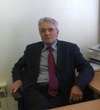
Longo Mario
 mario.longo@univr.it
mario.longo@univr.it
 045 8028393
045 8028393

Migliorati Lorenzo
 lorenzo.migliorati@univr.it
lorenzo.migliorati@univr.it
 045802 8135
045802 8135
Piano Didattico
Il piano didattico è l'elenco degli insegnamenti e delle altre attività formative che devono essere sostenute nel corso della propria carriera universitaria.
Selezionare il piano didattico in base all'anno accademico di iscrizione.
1° Anno
| Insegnamenti | Crediti | TAF | SSD |
|---|
Antropologia culturale
Psicologia dello sviluppo e dell'educazione
Sociologia e analisi delle dinamiche sociali
Storia della filosofia
Storia dell'educazione e della pedagogia
2° Anno Attivato nell'A.A. 2015/2016
| Insegnamenti | Crediti | TAF | SSD |
|---|
Didattica e progettazione educativa
Pedagogia dell'infanzia
Tecnologie informatiche e multimediali
Teorie e metodi della mediazione culturale
Geografia sociale e culturale
3° Anno Attivato nell'A.A. 2016/2017
| Insegnamenti | Crediti | TAF | SSD |
|---|
Teorie e tecniche della socializzazione primaria
| Insegnamenti | Crediti | TAF | SSD |
|---|
Antropologia culturale
Psicologia dello sviluppo e dell'educazione
Sociologia e analisi delle dinamiche sociali
Storia della filosofia
Storia dell'educazione e della pedagogia
| Insegnamenti | Crediti | TAF | SSD |
|---|
Didattica e progettazione educativa
Pedagogia dell'infanzia
Tecnologie informatiche e multimediali
Teorie e metodi della mediazione culturale
Geografia sociale e culturale
| Insegnamenti | Crediti | TAF | SSD |
|---|
Teorie e tecniche della socializzazione primaria
| Insegnamenti | Crediti | TAF | SSD |
|---|
Legenda | Tipo Attività Formativa (TAF)
TAF (Tipologia Attività Formativa) Tutti gli insegnamenti e le attività sono classificate in diversi tipi di attività formativa, indicati da una lettera.
Pedagogia generale [Cognomi A-L] (2014/2015)
Codice insegnamento
4S00738
Docente
Coordinatore
Crediti
9
Lingua di erogazione
Italiano
Settore Scientifico Disciplinare (SSD)
M-PED/01 - PEDAGOGIA GENERALE E SOCIALE
Periodo
Sem. IA, Sem. IB
Obiettivi formativi
Il corso si prefigge di fornire gli elementi essenziali del discorso pedagogico, chiarendone gli aspetti epistemologici
fondanti. In particolare, sarà delineata l’identità della pedagogia distinguendola dalle discipline vicine, specie filosofia,
psicologia e sociologia, valorizzando il rapporto interdisciplinare. Nella prima parte saranno approfonditi i concetti di
educabilità, educazione e pedagogia, delineando le componenti costitutive del discorso pedagogico. Si proseguirà
accennando al rapporto fra natura e cultura in educazione, soffermandosi sulle diverse correnti pedagogici (specie
personalismo, problematicismo, empirismo). Tali discorsi saranno declinati alla luce dei maggiori cambiamenti in atto e
di alcune tematiche di forte attualità.
Movendo dagli elementi generali del discorso pedagogico, nonché dai risultati delle più recenti ricerche scientifiche,
dalle sfide e “trappole” educative del ventunesimo Secolo (crisi di valori, di orientamento e di educazione), nel corso
delle lezioni si cercherà di mettere in luce la centralità della pedagogia per far fronte a molte delle crisi e dei conflitti
attuali. Dopo aver analizzato alcune fra le proposte più significative, si rifletterà su finalità, metodi e mezzi educativi
più opportuni al miglioramento del cammino della civiltà. In maniera particolare si terrà conto della educazione in una
società pluralistica.
- Conoscenze: concetti fondanti del discorso pedagogico, natura interdisciplinare, principali riflessioni in
ordine a finalità, metodo, mezzi, cultura, rapporto educatore-educando, ambiente. Sviluppo delle varie
correnti pedagogiche, ruolo della pedagogia a fronte della complessità.
- Comprensione: collocazione della pedagogia fra le altre scienze dell’educazione; comprensione della sua
rilevanza per riconoscere e affrontare sfide, rischi e opportunità nella società contemporanea.
- Capacità di applicazione: saper individuare elementi indispensabili nella costruzione di progetti educativi,
tenendo conto di tutte le diversità.
Programma
Bibliografia
parte generale
- PORTERA, A., BÖHM W., SECCO, L., Educabilità, educazione e Pedagogia nella società complessa. Lineamenti
introduttivi. UTET, Torino, 2007.
parte monografica
- PORTERA, A., Tesori sommersi. Emigrazione, identità, bisogni educativi interculturali, F. Angeli, Milano, 20086.
- BECK U., I rischi della libertà. L’individuo nell’epoca della globalizzazione. Mulino, Bologna, 2000.
- Aa. Vv. Educazione interculturale alla cittadinanza. Carocci, Roma, 2010.
Il corso sarà supportato da specifiche esercitazioni, che costituiranno parte integrante del programma d’esame. Per
l’approfondimento di tale parte pratica, sarà necessario utilizzare uno dei seguenti testi (che non dovrà essere stato
impiegato per altri esami):
- *DELORS, J., Nell’educazione un Tesoro. Armando, Roma, 1997.
- GRANESE, A., Istituzioni di pedagogia generale. CEDAM, Padova, 2003.
- BRUNER, J., La cultura dell’educazione. Feltrinelli, Milano, 1997.
- CONTINI M., La comunicazione intersoggettiva fra solitudini e globalizzazione. La Nuova Italia, 2002.
- GARDNER H., Sapere per comprendere. Feltrinelli, Milano, 1999.
- *MILANI L., Lettera a una professoressa, Libreria editrice fiorentina, Firenze
- MARITAIN, J., L’educazione al bivio. La Scuola, Brescia, 1963.
- * BREZINKA, W. L’educazione in una società disorientata. Armando, Roma, 1989.
- PERETTI, M., Valori perenni e pedagogia. La Scuola, Brescia, 1984.
- RICOEUR, P., La Persona, Morcelliana, Brescia, 1997.
- SECCO, L. Dall’educabilità all’educazione, Morelli, Verona, 2000
- *FRABBONI F., Pinto Minerva F., Manuale di pedagogia generale, Laterza, Roma-Bari, 2000.
- NUSSBAUM, M.C., Non per profitto, Mulino, Bologna, 2011
- BENASAYAG M., SCHMIT G. L’epoca delle passioni tristi, Feltrinelli, Milano, 2008.
- MORIN, E., I sette saperi necessari all’educazione del futuro. Raffaello Cortina, Milano 2001.
- BAUMAN Z., MAZZEO R., Conversazioni sull’educazione Erickson, Trento, 2012
* testo consigliato ai non frequentanti.
Modalità d'esame
Modalità di valutazione:
Le modalità didattiche e valutative dell’apprendimento saranno comunicate all’inizio delle lezioni.
Tipologia di Attività formativa D e F
Insegnamenti non ancora inseriti
Prospettive
Avvisi degli insegnamenti e del corso di studio
Per la comunità studentesca
Se sei già iscritta/o a un corso di studio, puoi consultare tutti gli avvisi relativi al tuo corso di studi nella tua area riservata MyUnivr.
In questo portale potrai visualizzare informazioni, risorse e servizi utili che riguardano la tua carriera universitaria (libretto online, gestione della carriera Esse3, corsi e-learning, email istituzionale, modulistica di segreteria, procedure amministrative, ecc.).
Entra in MyUnivr con le tue credenziali GIA: solo così potrai ricevere notifica di tutti gli avvisi dei tuoi docenti e della tua segreteria via mail e a breve anche tramite l'app Univr.
Prova Finale
La discussione dell’elaborato finale avviene alla presenza di una Commissione Istruttoria composta dal relatore del laureando ed un altro docente. La discussione può essere effettuata in presenza oppure a distanza, in base alle disposizioni di Ateneo.
Superata la discussione dell’elaborato con la Commissione Istruttoria, la proclamazione con comunicazione del voto di laurea avverrà nel periodo indicato nel calendario didattico.
Il giorno, l'ora e le modalità di proclamazione sono resi noti con la pubblicazione del Calendario Lauree commissioni Triennali.
Possono far parte della Commissione, in soprannumero e limitatamente alla discussione degli elaborati di cui sono correlatori, anche docenti ed esperti esterni.
La Commissione di proclamazione dispone di centodieci punti; il voto minimo per il superamento della prova finale è di 66/110; al candidato che abbia ottenuto il massimo dei voti, può essere conferita all’unanimità la menzione della “lode”.
Di norma la Commissione istruttoria può proporre di attribuire fino ad un massimo di 8 punti per l’elaborato finale. Per la determinazione del voto di laurea la media dei voti d’esame è calcolata tenendo conto di tutte le prove, in qualsiasi ambito del piano di studio individuale siano inserite, che diano luogo a un voto espresso in trentesimi. Tale media è ponderata in base al numero di CFU corrispondenti a ciascuna prova. A tale media sono aggiunti fino ad un massimo di 4 punti, distribuiti nel seguente modo:
- 0,5 per ogni lode fino ad un massimo di tre punti;
- 2 punti: in rispetto, e ampliamento, di quanto previsto dal Regolamento di Ateneo per la mobilità studentesca internazionale, allo scopo di favorire la partecipazione alla mobilità internazionale (vedi art. 5 comma 4° del Regolamento di Ateneo e art. 12 del Regolamento di Dipartimento sulla Mobilità internazionale), a tutte le studentesse e a tutti gli studenti che nel corso del ciclo di studi abbiano acquisito il riconoscimento in carriera di almeno 12 CFU conseguiti in mobilità internazionale verranno attribuiti n. 2 (due) punti aggiuntivi da computarsi ai fini della determinazione del punteggio finale di laurea.
- 1 punto per la conclusione degli studi nel periodo previsto;
- 1 punto per l’acquisizione di 40 CFU entro il primo anno di studi (il punto viene attribuito se il/la laureando/a si è immatricolato per la prima volta al I anno al sistema universitario nell'a.a. X/X+1 e ha proseguito al II anno nello stesso corso di studio. Si computano solo i CFU acquisiti nell'a.a. X/X+1 dal 01/10/XX al 31/12/XX+1 con esclusione di quelli derivanti da riconoscimento carriera. Non si applica per chi ha fatto una precedente rinuncia agli studi, una sospensione della carriera o se è stato ripetente).
La commissione proclamatrice, visto il punteggio di base, visti i punteggi aggiuntivi, visto il punteggio attribuito dalla commissione istruttoria alla presentazione, vista la eventuale proposta di lode della commissione istruttoria attribuisce la lode se si verificano entrambe le condizioni seguenti:
- La somma dei punteggi aggiuntivi, punteggio di base, e valutazione per la discussione risulta maggiore o uguale a 110;
- La commissione istruttoria ha proposto la lode.
Documenti
| Titolo | Info File |
|---|---|
|
|
pdf, it, 99 KB, 13/10/23 |
|
|
pdf, it, 101 KB, 10/04/24 |
Elenco delle proposte di tesi e stage
| Proposte di tesi | Area di ricerca |
|---|---|
| Ambienti e contesti di lavoro con minori | Argomenti vari |
| Analisi dei personal network di sostegno | Argomenti vari |
| comunicazioni relative alla tesi | Argomenti vari |
| Il teatro come contesto educativo | Argomenti vari |
| I processi di globalizzazione culturale nella società contemporanea | Argomenti vari |
| La social network analysis applicata allo studio dei contesti educativi | Argomenti vari |
| L'educatore ed i progetti europei | Argomenti vari |
| L'impegno associativo in ambito educativo | Argomenti vari |
| Politiche sociali e contesti educativi | Argomenti vari |
| Progetti di collaborazione con le istituzioni scolastiche | Argomenti vari |
| PROPOSTE TESI AMBITO GEOGRAFICO | Argomenti vari |
| Scuola e capitale sociale | Argomenti vari |
Esercitazioni Linguistiche CLA
Gestione carriere
Tutorato per gli studenti
E' attivo un servizio di tutorato da parte di studenti della laurea magistrale in Scienze pedagogiche; per l'A.A. 2023-2024, fino al 30 novembre 2024 l'attività sarà svolta dai seguenti studenti:
Pagina INSTAGRAM tutor.educazioneunivr
Per chiedere appuntamento o consulenza, mandare una email (dalla propria e-mail istituzionale) a questo indirizzo: tutoreducazione@ateneo.univr.it
Si precisa che nell'email dovranno essere inseriti:
- Nome e cognome
- matricola
- Corso di studi, indirizzo e anno di corso
- problematica/richiesta per cui si contattano le tutor.
Infine, si ricorda chetutti i docenti del Corso di Studio possono fornire una forma di tutorato volta ad orientare e assistere gli studenti lungo tutto il corso degli studi.
Le matricole, gli studenti che si approcciano al tirocinio, gli studenti in uscita e tutti gli studenti che manifestano difficoltà nel loro percorso di studi possono contattare i docenti indicati come tutor del corso di laurea in Scienze dell'educazione:
- prof.ssa Rosanna Cima (Referente del CdS)
- prof. Luigi Tronca
- prof.ssa Federica De Cordova.
Guide operative per lo studente
In questa pagina lo studente potrà trovare delle guide operative, utili al completamento del proprio percorso universitario, che vanno ad integrare quanto già indicato nei Regolamenti didattici del CdS.
1- Qui si possono reperire indicazioni in merito ai riconoscimenti di carriera, ai crediti a libera scelta per lo studente e alle certificazioni linguistiche per gli studenti iscritti ai CdS afferenti al Dipartimento di Scienze Umane a partire dalla coorte 2022 (le indicazioni contenute nella Guida entrano in vigore dal 29 marzo 2023 e sono retroattive solo se a favore dello studente);
2 - Qui si possono reperire indicazioni in merito ai riconoscimenti di carriera, ai crediti a libera scelta per lo studente e alle certificazioni linguistiche per gli studenti iscritti ai CdS afferenti al Dipartimento di Scienze Umane a partire dalla coorte 2014 (le indicazioni contenute nella Guida entrano in vigore dal 29 aprile 2020 e sono retroattive solo se a favore dello studente);
3 - Qui si possono reperire indicazioni in merito al conseguimento dei crediti a libera scelta (Crediti D e F) per gli studenti iscritti ai i CdS afferenti al Dipartimento di Scienze Umane fino alla coorte 2013 (le indicazioni contenute nella Guida entrano in vigore dal 23 febbraio 2011 e sono retroattive solo se a favore dello studente).
Documenti
| Titolo | Info File |
|---|---|
|
|
pdf, it, 325 KB, 02/05/23 |
|
|
pdf, it, 212 KB, 02/05/23 |
|
|
pdf, it, 131 KB, 02/05/23 |
Stage e Tirocini
Le ulteriori attività formative (crediti F) sono interamente coperte dall’attività di tirocinio “indiretto” (1 cfu) da svolgersi nel secondo anno e di tirocinio “diretto” (14 cfu) da svolgersi presso enti convenzionati per un numero complessivo di 15 cfu (375 ore). Chi è iscritta/o al curriculum servizi per l’infanzia è tenuta/o a svolgere il tirocinio presso nidi e servizi per la prima infanzia per almeno il 50% delle ore.
Il tirocinio professionalizzante (375 ore, pari a 15 cfu), è obbligatorio sia nella sua forma diretta che indiretta.
Il tirocinio indiretto, della durata di 25 ore a frequenza obbligatoria al 75%, si svolge in Università per 20 ore e in forma di lavoro individuale per 5 ore e consiste in un accompagnamento iniziale delle/degli studenti da parte dei tutor attraverso un percorso formativo dotandoli di conoscenze e strumenti adeguati a osservare, comprendere e rielaborare criticamente l’esperienza di tirocinio nei servizi educativi e ad affrontare il tirocinio negli enti con metodo e consapevolezza. Il percorso, da attuare in gruppi da 20-25 persone sotto la supervisione di un tutor, risponde alle esigenze costantemente espresse sia dalle/dagli studenti stessi sia dalle parti sociali che dai referenti degli enti convenzionati.
Il tirocinio diretto si propone di raggiungere i seguenti obiettivi:
- fare esperienza diretta di attività professionali, che richiedono un livello di preparazione al lavoro educativo;
- approfondire in particolare il rapporto tra preparazione teorica, acquisita mediante lo studio, ed esperienza pratica, tra mondo del sapere e della cultura e mondo del lavoro e delle professioni;
Al termine del tirocinio diretto lo studente deve presentare una relazione scritta, nella modalità concordata con il tutor accademico.
Nuove Linee Guida per il tirocinio di Scienze dell'educazione.
- Tutte le informazioni in merito agli stage per futuri studenti sono disponibili alla pagina Stage e tirocini.
- Tutte le informazioni in merito agli stage per studenti iscritti sono pubblicate in MyUnivr - come fare per - stage e tirocini.
- Tutte le informazioni in merito agli stage per le aziende sono disponili alla pagina Stage e tirocini per azienze.
Documenti
| Titolo | Info File |
|---|---|
|
|
pdf, it, 302 KB, 16/07/21 |









